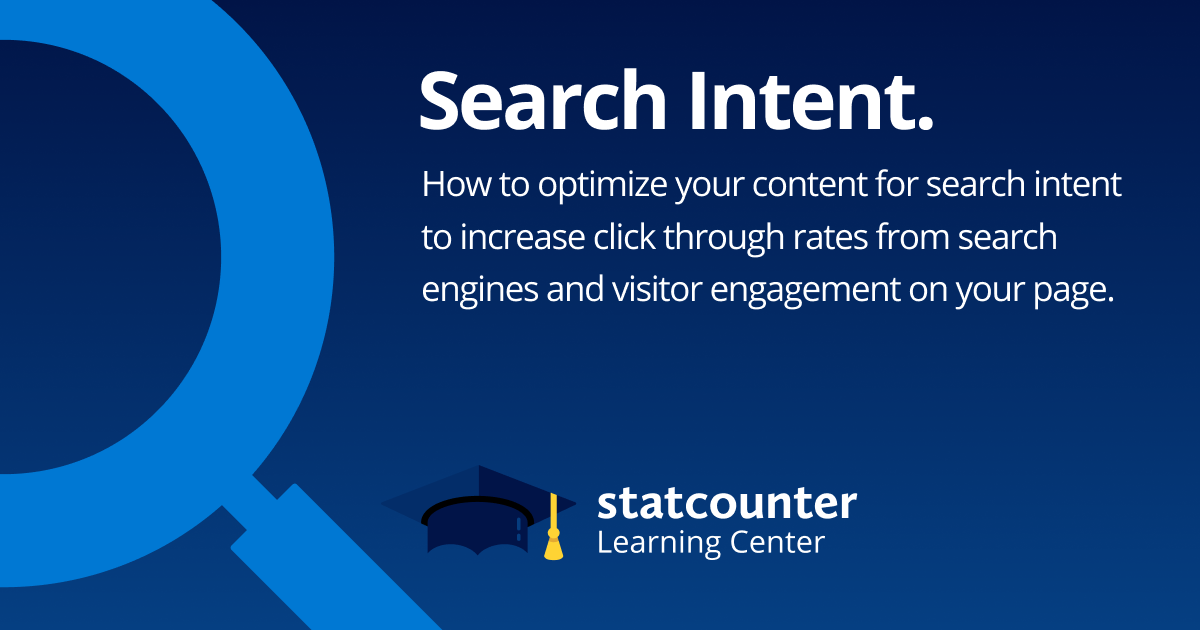Unveiling the Secrets of Ghosted Domains
Explore the intriguing world of expired domains and online opportunities.
Cracking the Code of Search Intent
Unlock the secrets of search intent! Dive into our expert insights and transform your content strategy to boost visibility and engagement.
Understanding the Different Types of Search Intent: A Comprehensive Guide
Search intent refers to the reason behind a user's query in search engines. Understanding the different types of search intent is crucial for SEO as it helps to tailor content that meets the needs of users effectively. Generally, search intent can be categorized into four main types: informational, navigational, transactional, and commercial investigation. Informational intent pertains to users seeking knowledge or answers to specific questions, while navigational intent involves users looking for a particular website or page. Transactional intent indicates a desire to make a purchase or complete an action, and commercial investigation describes users comparing products or services before making a decision.
To optimize for these intents, content creators must analyze keywords and phrases that align with each category. For instance, blog posts targeting informational intent should provide valuable insights and answers to common questions, thus enhancing user experience and increasing dwell time. On the other hand, e-commerce sites focusing on transactional intent might emphasize clear calls to action and product details. By understanding and implementing strategies for each type of search intent, businesses can improve their online visibility, meet user needs, and ultimately drive conversions.

How to Optimize Your Content for User Intent: Tips and Strategies
Understanding user intent is crucial for optimizing your content effectively. User intent refers to the reason behind a user's search query, and aligning your content with this intent ensures that you meet their needs. To start, categorize the different types of user intent: informational, navigational, and transactional. For instance, if your analysis reveals that users are searching for helpful guides, prioritize creating comprehensive how-to articles that provide value and answer their questions. Additionally, employing tools like keyword research and search analytics can help you uncover popular queries related to your niche, allowing you to tailor your content accordingly.
Once you've identified user intent, utilize several strategies to enhance your content. First, focus on using clear and concise headlines that reflect your keyword and intent; this not only helps with search visibility but also attracts clicks. Second, implement structured data, such as schema markup, which makes it easier for search engines to interpret your content. Finally, engagement signals, such as time on page and bounce rates, can indicate whether your content aligns with user expectations. Ensure your content is easy to digest, incorporating visuals and breaks in text, to keep readers engaged and encourage them to explore further.
What is Search Intent and Why is It Crucial for SEO Success?
Search intent refers to the underlying goal or purpose that a user has when entering a query into a search engine. It can be broadly categorized into four types: informational, navigational, transactional, and commercial investigation. Understanding these categories is vital as it helps content creators align their material with what users are truly looking for. For instance, a user searching for 'best running shoes' likely has a transactional intent, indicating they are ready to make a purchase. By tailoring content to match this intent, businesses can significantly enhance their visibility and attract more qualified traffic.
Recognizing and optimizing for search intent is crucial for SEO success because it directly influences click-through rates, engagement, and conversion rates. When search engines determine that a site effectively satisfies a user's intent, it is more likely to rank higher in search results. This alignment is not just beneficial for users seeking relevant content but also for businesses, as it leads to improved ROI. By focusing on delivering value that corresponds with what users want, brands can foster trust and make a lasting impact within their niche.